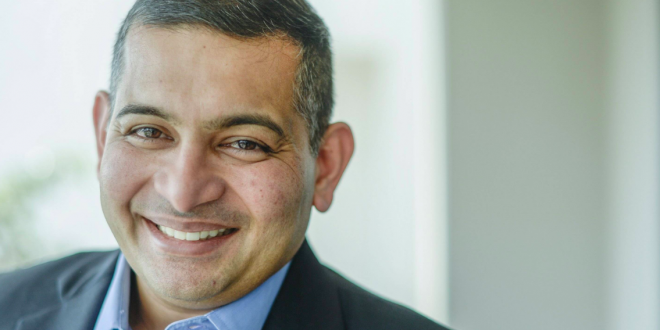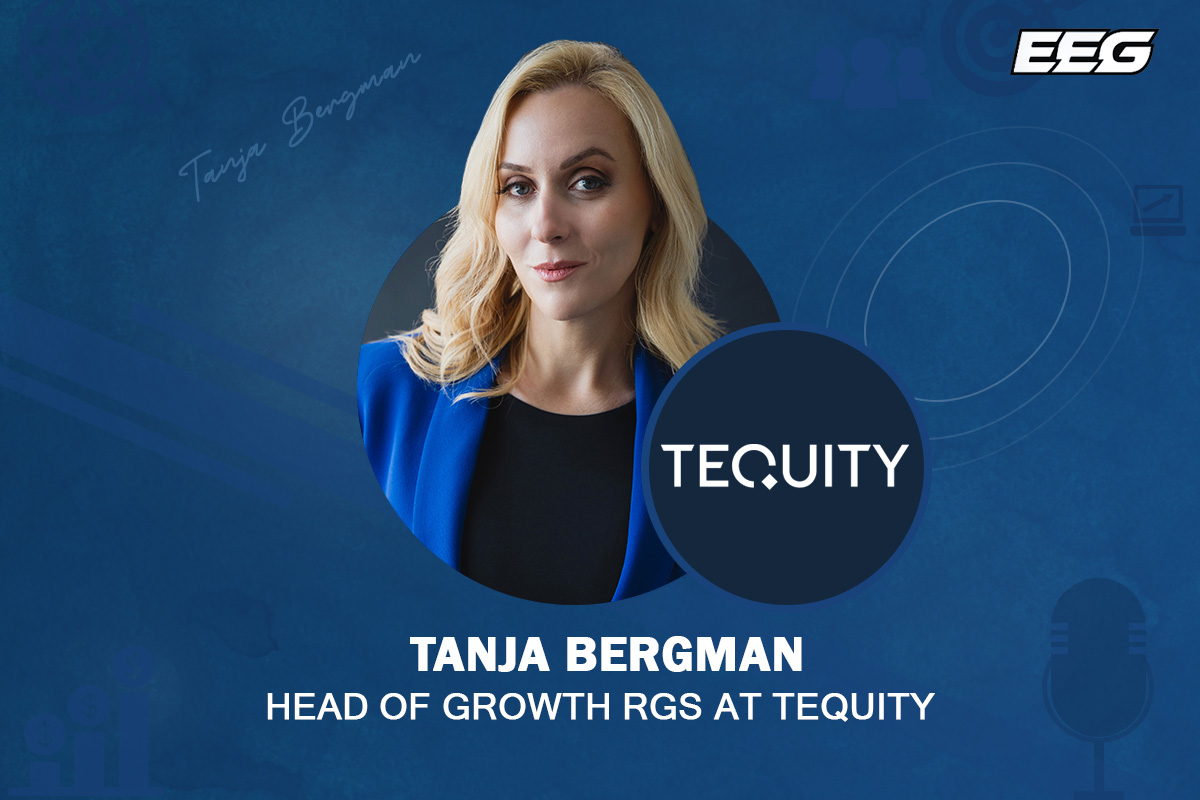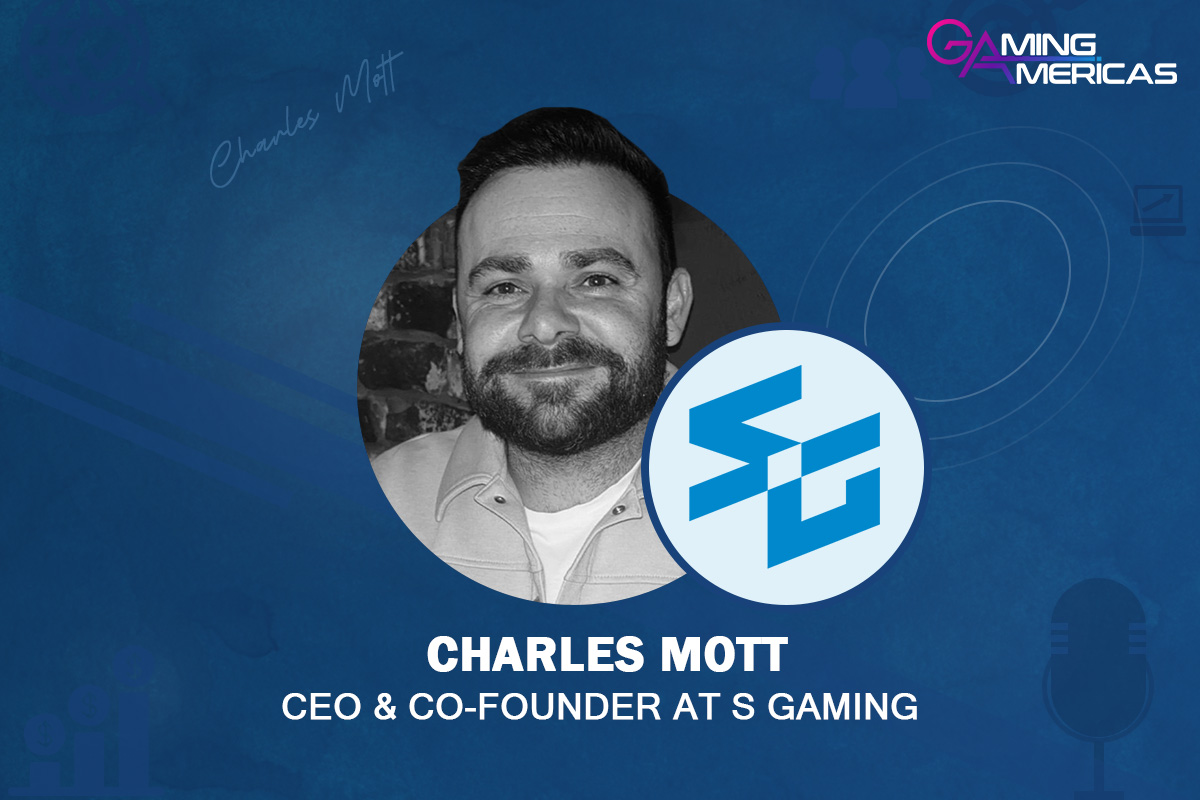Interviews
Exclusive Q&A with Sujit Unni, Chief Technology Officer at Paysafe

How important are payment methods and speed of payment processing important for customer experience in online sports betting?
We talked with Sujit Unni, Chief Technology Officer at Paysafe, which had conducted a survey among US punters. He provided insightful and detailed answers on this and several other questions.
Read on for some fascinating perspectives on the past, present and future of the payment process and its role in online sports betting.
Q. Let’s start with the recent survey that Paysafe conducted among US sports bettors. What are the key takeaways from the survey?
A. Here are some of the conclusions we came to after surveying sports bettors in eight regulated US states:
Available payment methods influence players’ decision to use a brand: To fully capitalize on the growing opportunity of online sports betting, sportsbook operators should strongly focus on the player experience at the checkout. The payment methods that are available and the security of said methods are critical for players when it comes to evaluating which brand they choose to place their bets with.
Transaction security factors highly into choice of sportsbook: When asked to identify which criterion was most important when depositing funds with a sports-betting brand, bettors said the security of the transaction was more important than any other characteristic.
Easy and fast payments are critical: Just as important to players is the speed and ease with which they receive their winnings when they wish to cash out. According to four fifths (79%) of US sports bettors we surveyed, they have a negative impression of the sportsbook when their expectations related to cash out speeds aren’t met. This can result in the sportsbook taking a large reputation hit. A poor reputation spreads among players and can result in a significant brake on its growth.
The online sportsbooks themselves must be fast and efficient: It’s important to make sure the sportsbook’s payment platform is moving quickly and efficiently. The easier it is for a player to access payouts, the more likely they will be to continue using the platform. Those who adapt to these demands will position themselves well for significant growth.
Q. Everybody talks about the speed of payments. How does speed factor into the mobile process as a whole, and how does it contribute to the overall success of an online business, especially an iGaming business?
A. iGaming is changing more rapidly right now than ever before. Mobile’s role in this evolution is huge, given apps’ potential for speed and the strong relationship we’re able to build with end-users: We’re right there, in their pockets, whenever they pick up their phone.
But proximity alone is not enough. End-users will grow bored or burnt out if their experiences are slow, or if we’re not constantly offering new experiences and improving what’s already available.
Increasing the speed of our processes and the user experience is critical in that every second of load time anywhere within the app literally costs every company money, especially in iGaming, which is less of a considered purchase than traditional mobile shopping or eCommerce. iGaming customers are making fluid, real-time decisions; the more time they have to wait to get to the next step, the less patient they become and the more likely they are to drop off.
Speed is a function of many factors, and there are a number of processes that power the payments experience. We work with mobile DevOps platform Bitrise to increase the speed of all of the mobile processes that power the user experiences leading up to and including payments, as well as the behind-the-scenes operational processes that influence our ability to release updates to the app stores more frequently and faster.
The payments part of the mobile process is a particularly expensive place to be slow. Out-pacing competitors in that process is what’s creating the winners in this space.
Q. What are the ways by which Paysafe tries to accelerate its mobile processes and e-payments?
A. If you look at it from a very high level, the two primary ways we accelerate our processes and e-payments are through having the best talent and technology.
We stay competitive on the talent side by attracting and – just as importantly –
retaining the best people in the world in this space. We have been able to build on their expertise to constantly improve the speed at which we deliver value for merchants and consumers alike.
When you are investing in this level of talent, it’s important that you are not wasting their skills on things like troubleshooting, waiting around hours to test builds, or doing manual fixes to problems that could be automated. So, on the technology side, our mobile engineering teams use Bitrise to test all new code, reduce build times from hours to minutes, identify issues that might interfere with the user experience, and so on, before submitting releases to the app stores.
Our goal is to always do everything as fast as possible, without sacrificing our standards of quality and security.
Q. It looks like the ‘slow and steady’ will not win the races anymore. But could the focus on speed–especially in payment processing–be detrimental to the fraud-prevention measures?
A. Building on my last answer, it’s imperative to not sacrifice security to save time. I will say that one of the upsides of investing in technology like Bitrise is that it allows us to get the best of both worlds: Speed and security. In our mobile engineering processes, for example, Bitrise allows us to automatically run a number of security tests and checks that were previously slow, manual labour. Now they take up less time, are more consistently executed, and actually free up the team to work on innovations for our merchants and consumers. That’s not to say that there aren’t manual checks involved anymore, but those are fewer and more meaningful.
Q. Could you talk about the recent innovations that Paysafe brought to the payments ecosystem?
A. Given the nature of our business we are constantly evolving our value proposition and anchor around our philosophy of customer outcomes. We tend to think of innovation around key pillars including:
- Evolving our business to be a true cloud-based platform that supports multi-sided markets. This allows existing customers and merchants to access new features and stay engaged with our platform. The recent introduction of Openbucks, a product that allows store gift cards to be used at point of sale at other merchants in the Paysafe network, benefits customers who can now use restricted gift cards across a wider merchant base, and allows our merchants to accept a non-traditional payment method.
- Building out hybrid-business models with the wider finance eco-system through the launch of capabilities like pop-up banking with traditional banks like TSB. While serving as a revenue stream, this also allows banks like TSB to optimize their branch footprint and enables customers to access simple transactions using the Paysafe network.
We have also spearheaded a suite of embedded finance offerings with partners like Amazon and Google. Our offerings of cash to digital, digital wallets and processor agnostic payment methods makes us one of the few firms that can offer industry specific open loop and closed loop solutions.
Q. Allow me now to bring a customer perspective. What benefits do companies, especially those in the iGaming sector, gain from integrating the accelerated payment solutions of Paysafe?
A. Given our “born in gaming” origins, we believe we are one of the few payment platforms in the market that has a full suite of solutions to support both store based and online operators. This means our combination of brick and mortar, wallet, and cash solutions allow customers to seamlessly transact and play across the in-store and online offerings of our gaming merchants.
Solutions like our single integration API give our gaming merchants access to payment processing platforms that are accessible in multiple geographies through different processors, a host of local payment methods and a global network of banks. This in effect improves the customer experience and reduces revenue losses from declined transactions.
Effective risk and fraud management is a key differentiator, given the deep expertise and geographical coverage we provide the industry. Our investment in our risk and fraud infrastructure protects both merchants and customers while ensuring a seamless payments experience.
Q. The new technologies in the payment space have blurred the boundaries of national currencies to an extent. What are your thoughts on the influence of the laws and regulations of different countries on the growth of payment processes, especially for a highly regulated industry like iGaming?
A. The world is definitely a smaller place from a payments perspective today than it was five or six years back, largely enabled by the rapid adoption of disruptive technologies like blockchain, API driven ecosystems, and standardization of messaging services.
Like any financial service, payments are heavily influenced by regulation – and fortunately in a good way for the most part. Governments have been quick at recognizing how critical a scalable and democratized payments infrastructure is to drive economic growth and, as a result, we see regulation being enacted in in many markets. This is helping build out global payment ecosystems – for instance, UPI in India, Open Banking in Europe, or FedNow in the US. As this ecosystem continues to evolve, we see the emergence of trends like pay by bank and local payment methods continuing to grab market share from the card schemes, which will benefit both consumers and merchants.
iGaming is still in its infancy and, in certain markets like the US, can ride this wave of an open payments ecosystem to provide a far superior experience to its customers. Regulation in gaming is still evolving and it will look to more mature markets in Europe for insight as it starts to put in place legislation for the industry. Paysafe is leveraging its established presence in the EU to bring insight and product offerings to the US market that allow our gaming partners to not only grow their business in line with established legislation but also to build and offer products that consider future legislation that we think could be enacted.
Q. What is your take on the growth of mobile payments over the last few years?
A. Smartphones are a part of our daily lives today and are to a large degree considered indispensable. In the few years leading up to the pandemic, we were already seeing steady growth in mobile payments. The onset of the pandemic accelerated that growth by as much as 75% in some segments.
Some of the key drivers are:
The influence of digital transformation: As industry sectors, particularly financial services, have increasingly been disrupted and transformed, the mobile phone has emerged as an important customer engagement channel. As customer behavior matured to using mobile phones as a transaction medium, the need to support payments drove adoption.
The rise of emerging digital economies: The other big influence was the rise of emerging economies. India, for example, had a head start in becoming a digital economy with its population armed with mobile phones before they even had access to desktop computers. Countries like India that are supported by digital friendly government regulations, have a large unbanked population and an industry that’s very willing to provide payment and banking solutions, witnessed exponential growth in mobile payments.
Apps, wallets, and subscription services: As the number of apps hosted on Apple and Android platforms grew, people are increasingly using mobile phones to purchase a range of services, from buying tickets to ordering rides and subscription services. This adoption led to the creation of a full payment supportive ecosystem, including wallets (Apple Pay, Google Pay, and our own Skrill digital wallet, among others) and emerging payments volumes driven by a growing library of subscription services.
Payments continue to become easy and reliable: Having a credit or a debit card used to be the only way to make a payment on a mobile phone. However, payments have evolved to keep up with the emerging digital landscape. Today beyond these traditional payment methods, customers can pay with their bank accounts, cash, and by using over 200 local payment methods specific to geographies –which has democratized payments. That coupled with regulation to promote open banking systems and reliable real-time payments as well as faster payment infrastructure has helped drive the surge of mobile payments.
Increasingly secure and safe transactions: Wherever there is a financial transaction there is also the risk of fraud. Because of this, mobile phones have evolved to continually make transactions both convenient and safe. Whether it’s by using face ID, biometrics or contactless payments, the ability of the manufacturers to deliver secure payments was critical in driving the wider adoption of mobile payments.
Q. Let’s conclude with something about the future. Could you reveal some of the changes that you foresee coming in the mobile space? What about the payments sector?
A. With app store operators seeing pressure from governments around the world to loosen their grips on the mobile ecosystem – especially in terms of payments – we expect to see some massive changes soon.
Alternative app stores that allow more app choices for end-users and more payment processing choices for app store publishers are benefitting both merchants and consumers.
Additionally, we expect the consumer’s need for speed to increase even further, widening the divide between those businesses that can deliver on this expectation and those that can’t.
We’re confident that, between the talent of our team and partners like Bitrise, we’ll land on the right side of that divide.
Powered by WPeMatico
Interviews
Inside the Kongebonus Awards: What Norway’s Players Are Telling the iGaming Industry

As the only iGaming awards originating from Norway, the Kongebonus Awards are decided entirely by open player voting, offering a rare, unfiltered view into what truly resonates with a dedicated gaming community. Kongebonus Editor-in-Chief, David Nilsen, explains how this year’s results reflect shifting player expectations, highlight both emerging and established studios, and contribute to wider industry conversations around quality, innovation and long-term engagement.
The Kongebonus Awards are now in their fourth year. How have you seen them evolve since the first edition?
Since the first edition, the Kongebonus Awards have grown both in reach and in significance. What started as a way to highlight standout games for our Norwegian audience has developed into a recognised annual moment where player sentiment is clearly reflected back to the industry. Each year we see greater engagement from the community and more awareness among studios and suppliers about what the awards represent. The structure has also matured, with categories that better capture the diversity of modern game development. Most importantly, the awards have become a consistent reference point for which games and providers have truly connected with players over the past year, giving the results increasing weight within the wider iGaming conversation.
This year’s awards were presented in connection with ICE Barcelona. How important is it to connect a Norwegian, player-driven initiative with the wider international industry?
Connecting the awards to an international event like ICE Barcelona helps bring local player insight into the global industry spotlight. While the voting comes from Norwegian players, the studios and games involved operate across many markets. Presenting the results in that setting underlines that player preferences in Norway are part of wider trends in iGaming. It also allows international stakeholders to see how a Nordic audience responds to different styles of games, mechanics and themes. That perspective can be valuable for product planning and market strategy.
This year’s winners were decided through open public voting. Why is it important that the results reflect the voice of players so directly?
Having the winners decided through open public voting ensures the results are grounded in real player experience. The recognition comes directly from the people who have spent time with the games, formed opinions and chosen their favourites. That gives the awards a strong sense of authenticity. It moves the focus away from internal industry perspectives and places it firmly with the end users. For studios, this kind of recognition signals that their work has genuinely resonated with players, not just performed well commercially. Player-led results offer a clear and transparent indicator of which games and providers have built lasting appeal, and that makes the outcomes especially meaningful within the industry.
The awards focus not only on commercial performance, but also on quality, innovation and player experience. From this year’s winners, what stood out most to you?
What stood out most was the balance between creativity and accessibility. Players clearly reward innovation, but only when it is paired with strong execution and an enjoyable overall experience. Many of the recognised titles combine distinctive mechanics with clear game identity and smooth gameplay. There is also evidence that consistency matters. Studios that repeatedly deliver engaging, reliable experiences tend to build strong followings, and that loyalty is reflected in the voting.
How do categories such as Rising Star Game Developer and the Readers’ Hall of Fame help ensure the awards spotlight both emerging studios and more established names?
These categories make sure the awards reflect the full spectrum of achievement in the industry. The Rising Star category gives visibility to newer studios that are already making a strong impression with players through innovation and creativity, even if they do not yet have the scale of the largest providers. In contrast, the Readers’ Hall of Fame recognises games that have achieved lasting popularity and become long-term favourites. Including both perspectives shows that excellence is not limited to one stage of growth. It highlights that players value both fresh ideas and proven experiences.
Looking ahead, how do you expect the awards to continue growing, and what role do you see Kongebonus playing in shaping player-led conversations in the industry?
As player expectations continue to change, the awards will develop alongside them. The aim remains to document and highlight the studios and games that genuinely stand out from a player perspective. Over time, this may mean refining categories or exploring new ways to reflect emerging trends, while keeping open voting at the core. Kongebonus will continue to act as a bridge between players and the industry, translating community sentiment into insights that studios and suppliers can learn from. By keeping the focus on player experience and feedback, the awards can play a growing role in encouraging the industry to prioritise quality, innovation and long-term player engagement.
To find out more about this year’s Kongebonus Awards and see the full list of winners, visit: https://www.kongebonus.com/nyheter/vinnere-av-kongebonus-awards-2025/
The post Inside the Kongebonus Awards: What Norway’s Players Are Telling the iGaming Industry appeared first on Eastern European Gaming | Global iGaming & Tech Intelligence Hub.
Interviews
Scaling innovation through the launch of Tequity Publishing

Following the announcement of its new publishing vertical and the successful debut of Royal Drop, we sat down with Tanja Bergman, Head of Growth RGS at Tequity, to discuss how this new arm is set to dismantle technical barriers for ambitious studios and why scalability is the new frontier for the ‘Burst Games’ genre.
Tequity has just officially launched its Publishing vertical. What was the primary catalyst behind this move?
The industry is currently in a fascinating place. There is no shortage of creative talent among studios, but there is a massive technical bottleneck. We have seen so many ambitious studios with incredible concepts – especially those moving beyond traditional slots – who have been getting bogged down in terms of getting those concepts out into the marketplace.
The catalyst for Tequity Publishing was simple. We wanted to break down those technical barriers. By handling the infrastructure, distribution, and compliance frameworks, we allow studios to do what they do best, which is build outstanding games. It’s about speed-to-market without compromising on the quality or the vision of their content.
The launch coincides with the release of Royal Drop. How does this game, and the partnership with Mirror Image Gaming and The Fortune Engine, showcase what Tequity Publishing is all about?
Royal Drop is the perfect proof of concept. It’s a collaboration that highlights three important pillars of modern game delivery. You have Mirror Image Gaming bringing that fresh, video-game-influenced Burst Games energy, The Fortune Engine provide the math tools and templates, and Tequity Publishing offers the global scale and distribution pathway.

It shows that when you remove operational friction, you can create a game-first experience that appeals to a new generation of players who want something more interactive than a standard 5×3 reel.
Tequity Publishing offers two models: RGSaaS and RGS-to-RGS. Can you walk us through the strategic benefits of each?
Flexibility is key, because no two studios are at the same stage of their journey. The RGSaaS model is our full-service offering. It’s designed for studios that want to focus 100% on the creative side. We provide the entire infrastructure and publishing framework and it is essentially a business-in-a-box for game creators.
The RGS-to-RGS model is a more streamlined, tech-first approach for studios that already have their own RGS but lack the distribution muscle. It allows them to plug into our growing operator and aggregator network instantly. Both models are built on the same philosophy: helping studios reach parts of the market they otherwise couldn’t access on their own.
You mentioned reaching new generations of players. How does this vertical specifically empower studios to innovate in ways they couldn’t before?
When a studio is concerned about how they are going to integrate with a multitude of different operators or how to navigate complex jurisdictional requirements, they tend to play it safe. They stick to what they know.
By taking that weight off their shoulders, we give them the opportunity to be brave. Studios like Mirror Image Gaming are pushing the boundaries of modern iGaming, taking influences from the video game world. This is exactly what the new generation of players is looking for. We provide the scalability so that these niche, innovative ideas can achieve mass-market impact.
It’s been a busy period for Tequity, following the success of your Originals series and the iBankroll partnership. How does the Publishing vertical fit into the broader Tequity roadmap for 2026?
It’s all part of becoming the ultimate technology partner for the gaming industry. Whether it’s our streamer-friendly Originals or our Bankroll-as-a-Service offering, the goal is to provide scalable, customisable solutions. Tequity Publishing is the natural evolution of that mission. We aren’t only providing the tools anymore, but also the pathway to the player. Looking ahead, you can expect a series of further launches through our three-way collaborations. We’re proving that the barrier to entry for innovation has never been lower.
Finally, for studios looking to scale quickly, what is your main message to them?
Don’t let technical noise drown out your creative signal. If you have a game concept that breaks the mould, you shouldn’t have to spend years building the distribution architecture to get it seen. That’s what we’re here for. We want to help you launch at a speed and scale that matches your ambition, so that you can make a significant splash in the industry.
The post Scaling innovation through the launch of Tequity Publishing appeared first on Eastern European Gaming | Global iGaming & Tech Intelligence Hub.
BetMGM
Breaking America with BetMGM

We speak to Charles Mott, CEO & Co-Founder at S Gaming, about the provider’s move into the US market with BetMGM and why more casual gameplay hits the mark with players stateside
Congratulations on your deal with BetMGM in the USA. Why is this such a milestone market launch for S Gaming?
The deal with BetMGM marks our hotly-anticipated launch in the US market, and sees our games go live to players in core regulated states such as New Jersey, Pennsylvania, West Virginia and Michigan. We see huge potential for our content in the North American market, and to make our debut with such a high-calibre operator is a testament to this. The US is still just finding its feet as a regulated online casino market, and our games, with their focus on sustainability and high entertainment, are the perfect fit for audiences who are used to land-based slots and are increasingly moving online. They are simple, easy to understand and play, and ultimately deliver tons of fun over longer playing sessions – just like the slot machines found on the floors of casinos in Las Vegas and beyond.
Just how important was it to go live with a tier-one operator like BetMGM? And how will the deal allow you to quickly build momentum in the US?
It’s mission critical. Going live with BetMGM allows us to build immediate trust with players, tap into a large and loyal playerbase, and simultaneously enter multiple regulated iCasino states at the same time. Now that we are up and running with BetMGM, we are turning our attention to striking partnerships with other operators active in the market. It’s pretty much the same blueprint that we’ve followed in our home market of the UK where we are now live with all but a handful of brands – something we have been able to achieve in a little over two years. We know the US is a slightly different market, but we are confident in our approach to game development and, as we gather more data on how US players interact with our games, will use this feedback loop to guide our product roadmap going forwards so that each title is better than the last and more suited to the preferences of US players.
You mentioned that your games are aimed at more casual players. How does this align with the preferences of US consumers?
If you walk onto the gaming floor of any Las Vegas casino, you’ll see row after row of slot machines. Increasingly, these machines are designed to keep players entertained for longer through gripping gameplay and regular wins. A lot of online slot content delivers high risk/high reward gameplay, where players can quickly clear through their balance as they hunt down big wins – wins that don’t land all that often. In a market where operators care deeply about retention and lifetime value, games that keep players spinning for longer really matter. Our approach to producing sustainable, fun games for players in the UK and Europe has allowed us to not only stand out but to engage players at scale, and we are confident players in the US, especially those who enjoy land-based slotting, will also be drawn to them at scale.
Has launching in the US been a major undertaking for S Gaming, or did it prove to be plain sailing for the most part?
When planning our move into the US market we identified two routes. We have our own remote game server, so we could build on that, secure licences in each state we wanted to enter, and then deploy our content directly with operators. The other option would be to work with a third-party RGS provider that already has the licences and integrations we needed. While the first option might sound like the best, in reality, especially for a smaller studio, the cost of and resources required for securing individual state licences can be prohibitive. So instead, we joined forces with Gaming Realms as they have the cutting-edge RGS and licences (in both the US and Europe) we were looking for. This means we simply need to build a US version of each game on the Gaming Realms RGS and can then deploy content with the wide range of operator partners they are connected with in regulated iCasino states across the US.
Tell us more about the initial run of games you’ve launched with BetMGM.
We’ve launched the partnership with Barnyard Bash Chicken Chase which will be followed by Triple 7 Jackpot in February and Cat and Mouse Collect in March – with one new game a month to follow as we build out our US portfolio. If players were to try just one of our games, it would be Barnyard Bash Chicken Chase. It gets players clucking as they spin the reels, collect Eggs and add them to the growing Nest – the more eggs collected, the bigger the Nest Egg becomes. Not only that, Eggs can randomly activate the matching colour-coded Nest Egg and award entry to the Chicken Trail feature, drop Egg-stra Free Spins or lay an Instant Prize.
But once they’ve tried it, they’ll definitely want to take Triple 7 Jackpot for a spin. This classic slot is dripping in neon action – the Triple 7 feature is always on screen but is locked until a spin lands three Bonus 777 symbols. This unlocks the feature with on spin awarded, giving players a shot at the 500x Jackpot prize. Free Spins are also up for grabs with seven Free Games awarded when three Scatters land in the base game.
Finally, Cat and Mouse Collect is a playful, feature-rich slot built around a simple but engaging Collect mechanic. Players pin the reels, collect up the cheeses and feed the hungry mice until they’re fit to burst. Green plates will serve up an instant prize, Blue will start the wild and wacky Cheese Chase and Red dishes out some feisty Free Spins. With regular feature triggers and plenty of on-reel interaction, it’s designed to keep players engaged from spin to spin without relying on extreme volatility.
What does success in the US look like for S Gaming over the next 12-18 months?
Success for us isn’t about one big hit, it’s about becoming a trusted, widely-distributed supplier in regulated iCasino states. Over the next year we want to significantly expand beyond BetMGM, roll out a steady pipeline of US-optimised titles and build the kind of player data and
operator relationships that let us grow sustainably. If players in New Jersey, Pennsylvania and Michigan are regularly choosing S Gaming titles as part of their core rotation, then we’ll know we’re really breaking into the market.
The post Breaking America with BetMGM appeared first on Americas iGaming & Sports Betting News.
-

 Amusnet5 days ago
Amusnet5 days agoWeek 7/2026 slot games releases
-

 Aphrodite’s Kiss5 days ago
Aphrodite’s Kiss5 days agoLove on the Reels: Slotland Introduces “Aphrodite’s Kiss”
-

 Denmark6 days ago
Denmark6 days agoRoyalCasino Partners with ScatterKings for Company’s Danish Launch
-

 Finnish Institute for Health and Welfare7 days ago
Finnish Institute for Health and Welfare7 days agoFinland’s Health Authority Launches “2-4-2” Gambling Risk Limits Ahead of Expected Advertising Boom
-

 Latest News6 days ago
Latest News6 days agoWinSpirit’s UnValentine’s Day: A New Take on February Engagement
-

 Bryndís Hrafnkelsdóttir7 days ago
Bryndís Hrafnkelsdóttir7 days agoNOVOVISION Implemented at the University of Iceland Lottery
-

 40 Treasures7 days ago
40 Treasures7 days agoCT Interactive Enters into Partnership with Mozzartbet.rs
-

 Balkans7 days ago
Balkans7 days agoExpanse Studios Signs Content Distribution Deal with Lobbet



















